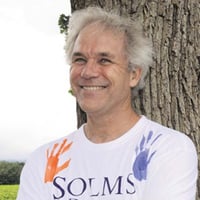#PS-03-10 What is a Mind?
About Course
University of Cape TownDescription
Why join the course?
This free online course will bring together learners and practitioners interested in how the mind works. It aims to build bridges between traditionally antagonistic approaches to understanding the mind.
What is a mind?
This question has perplexed philosophers, scientists, historians and ordinary people across time and cultures.
While advances in the medical understanding of how the brain functions can shed light on neurological functions and disorders, the essential question of what the mind is speaks to a different problem.
This problem cannot be answered by a purely scientific understanding of the brain, nor by a purely philosophical or psychological approach. Many disciplines have attempted to address the question, resulting in multiple and sometimes antithetical answers.
New understandings of the mind
On this course, Professor Mark Solms, Chair of Neuropsychology at the University of Cape Town, will adopt a multidisciplinary approach.
He will bring in perspectives from a range of disciplines, to explore four specific aspects of the mind- subjectivity, intentionality, consciousness and agency. Together, these will help us think about the fundamental questions: what it is to be a mind, why we have a mind and what it feels like to have a mind.
You can find out more in Professor Mark Solms’s posts for the FutureLearn blog: “What is a mind? One of the great mysteries of our time” and “Thinking and feeling: what’s the difference?”
What topics will you cover?
- Understanding the Mind
- Subjectivity
- Consciousness
- Intentionality and the Unconscious
- Agency
- Changing the Mind
Who will you learn with?
Chair of Neuropsychology at UCT, founder of Neuropsychoanalysis which encompasses the integration of psychoanalytic theories and modern neuroscience
Who developed the course?
The University of Cape Town is one of the leading higher education and research institutions on the African continent and has a tradition of academic excellence that is respected worldwide.
What Will I Learn?
- Explore scientific and philosophical concepts for understanding our own minds.
- Discuss four aspects of the mind, namely subjectivity, intentionality, consciousness and agency.
- Reflect on what it is to be a mind, why we have a mind and what it feels like to have a mind.
Topics for this course
Understanding the mind
Introduction to What is a Mind?00:03:57
Your interest in the mind
How to use
How this course works
Defining properties
Thinking further
What’s next
This course is a good fit for me. It taught me the do's and don'ts and the rationale behind it all. It's priceless information that if properly applied will save me.
The course is good, bringing together learners and practitioners interested in how the mind works. Its purpose is to build Bridges between traditional methods of opposition to understanding the mind.
This course is about new understanding of the mind, changing the mind.
Another great lesson, which helps me to understand more fully the structure of the brain.



